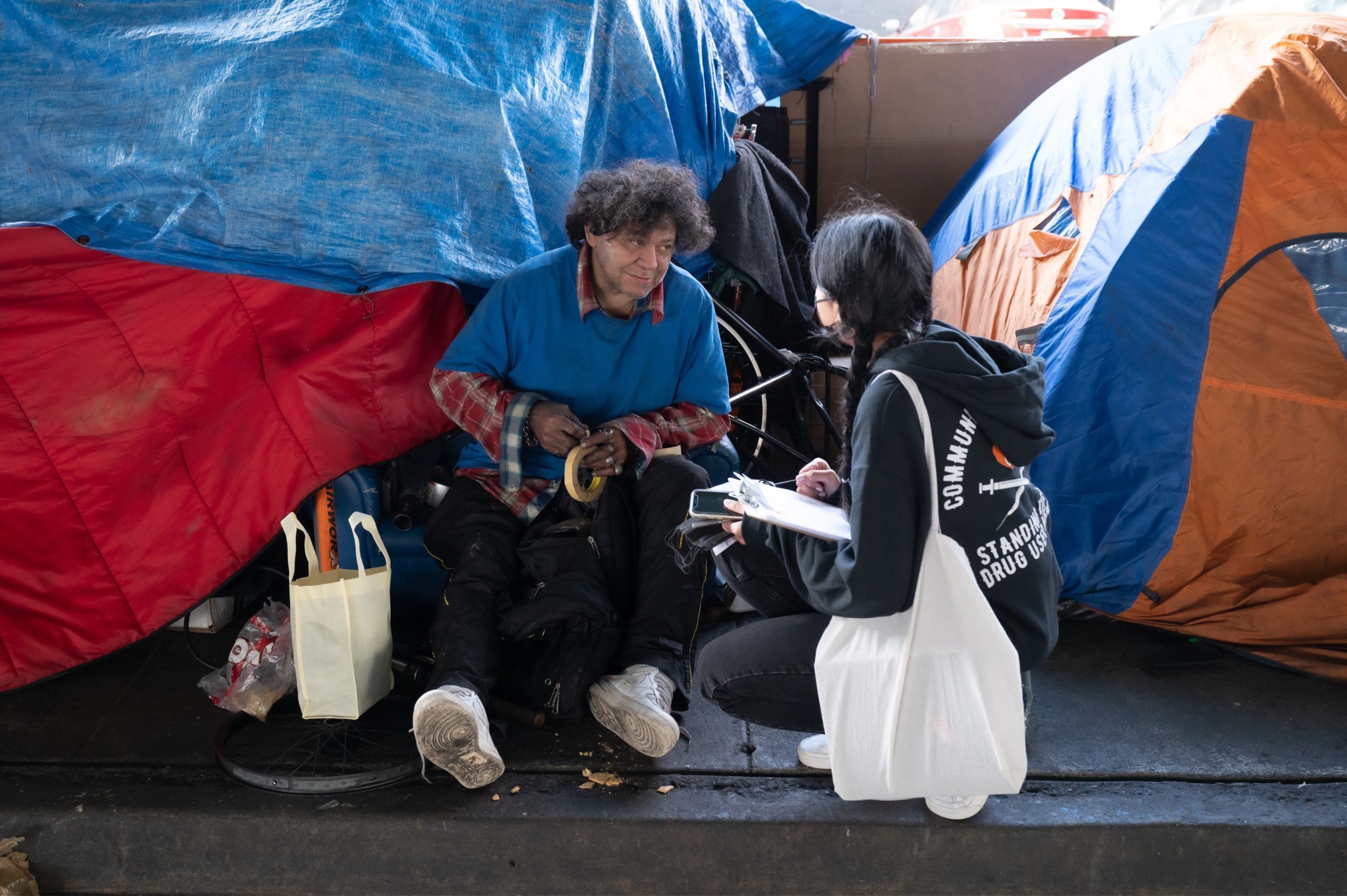GLIDE’s response to the Governor’s announcement of a “Surge in Law Enforcement Operations”
 Our city, like many others, is facing a dire public health and safety emergency as we confront the escalating opioid overdose epidemic unfolding on our streets. In addition to the collective suffering and loss of life, this crisis is driving deep division and distrust at a time when our priority must be collaboration. Facing these critical challenges together is the only way through. At GLIDE, we transform adversity into unconditional love and healing to emerge stronger, safer, and more resilient. We’ve been doing it successfully for the past 60 years.
Our city, like many others, is facing a dire public health and safety emergency as we confront the escalating opioid overdose epidemic unfolding on our streets. In addition to the collective suffering and loss of life, this crisis is driving deep division and distrust at a time when our priority must be collaboration. Facing these critical challenges together is the only way through. At GLIDE, we transform adversity into unconditional love and healing to emerge stronger, safer, and more resilient. We’ve been doing it successfully for the past 60 years.
We know we need to take bold, urgent action to address this crisis. However, decades of experience have shown us that the war on drugs, and drug users, will not increase safety, community cohesion, or stability. Policing the drug crisis has not and will not solve addiction; seizures of narcotics will not curb demand. Rather, it initiates a chain of arrests that exacerbates struggles and pushes a healthier life further away, ultimately causing more damage than relief.
For over two years during the pandemic, much of the world closed its doors to people suffering on the streets. As we reopen in a post-pandemic world that looks much different, our first response should be with healthcare professionals, harm reduction supplies, Narcan, and safe therapeutic spaces.
It is out of an abundance of concern for those struggling with substance use disorder and extreme poverty – and for those who yearn for a safer, more equitable, and loving city – that we implore our leaders and residents to come together to solve this crisis through public health measures and not policing.
Evidence based research makes clear that neighborhoods struggling with active drug-dealing networks suffer significant consequences to sudden and rapid increases in law enforcement without requisite access to low-barrier, public health resources. Residents of these neighborhoods experience a degradation in public safety and drug users face dire health consequences.
Community-based organizations like GLIDE play a vital role in addressing immediate and long-term solutions. We serve as first responders, along with our coalition partners, to link people suffering from substance use disorder and poverty to a full spectrum of supports and services, ranging from access to safe consumption to abstinence-based recovery models. These services address the core issues driving this public health crisis – poverty, extreme income disparities, trauma, and social isolation. Because of our long history of work with the City’s most marginalized communities and our record of impact, we believe GLIDE should be invited to the planning table anytime a strategy is being developed that will impact our people.
At GLIDE, the breadth of our programs and our approach to meet people where they are translates to increased stability and resiliency for our community. Every day, people turn to our integrated service model for meals, health care, case management, violence prevention, and spiritual healing. We drive bold systemic change through our Center for Social Justice to address the root causes of poverty and addiction and we channel the power of unconditional love through Glide Memorial Church.
The good news is we have the power to solve this crisis. What changes lives for the better is hope, not handcuffs. By combining data driven solutions to treat substance use disorder with San Francisco’s unique legacy for compassion and acceptance, we can heal from the ails we face and come together as one city. GLIDE has and will stay true to that promise, unconditionally.
